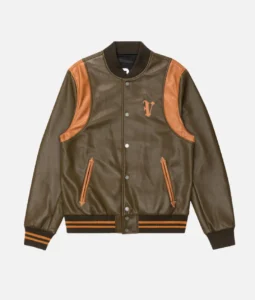When it comes to maintaining your boat, one of the most important elements to consider is the through hull fittings. These small but essential components help regulate water flow in and out of your boat, ensuring your systems run smoothly and your vessel stays watertight. But not all fittings are created equal, and if you’re boating in the Solent, finding high-quality through hull fittings is key to ensuring safety and longevity.
So, where can you find through hull fittings Solent, and what should you be looking for? This guide will walk you through everything you need to know to make the best decision for your boat.
Why High-Quality Through Hull Fittings Matter
Through hull fittings are more than just a simple piece of hardware. They’re responsible for managing crucial systems like bilge pumps, engine cooling, and plumbing. Poor-quality fittings can lead to leaks, water damage, or even sinking. When you’re boating in a place like the Solent, with its salty water and often unpredictable conditions, the durability and quality of your through hull fittings become even more critical.
Investing in high-quality fittings means your boat is better protected against corrosion, wear, and unexpected failures. It’s an investment in both your boat’s performance and safety.
What to Look for in Through Hull Fittings
Before you start shopping, it’s important to know what makes a high-quality through hull fitting. Here are a few key factors to consider:
1. Material
The material of your through hull fittings will affect their durability and resistance to corrosion. In marine environments, especially in the Solent, you need fittings that can withstand constant exposure to saltwater. The most common materials used for through hull fittings include:
- Bronze: A durable and corrosion-resistant material that’s ideal for marine environments. It’s the gold standard for long-lasting through hull fittings.
- Stainless Steel: Offers good corrosion resistance and a sleek appearance but requires regular maintenance to avoid pitting.
- Plastic (Marelon): Lightweight and corrosion-free, plastic fittings are a good option for smaller boats but may not have the longevity of metal options.
- Brass: Should generally be avoided in marine environments due to its susceptibility to dezincification, which weakens the fitting over time.
2. Type of Fitting
There are different types of through hull fittings, and the right one will depend on your boat’s systems and configuration:
- Straight Through Hull Fittings: These are used for simple water intake and outflow systems. They are basic, functional, and easy to install.
- Angled Through Hull Fittings: Ideal for tight spaces where a straight fitting might not work. These fittings help direct water flow without bending hoses.
- Flush Through Hull Fittings: Designed to sit flush with the hull, these fittings reduce drag and are often used on performance boats where hydrodynamics are important.
3. Certification and Standards
Make sure the fittings you choose meet the relevant marine safety standards. High-quality through hull fittings should be certified by recognised bodies, ensuring they are safe for use in marine environments. Look for certifications like ISO (International Organization for Standardization) or standards set by the Maritime and Coastguard Agency (MCA) in the UK.
4. Durability
In the Solent’s tough marine conditions, durability is key. You want through hull fittings that can withstand saltwater, varying temperatures, and frequent use. Check the fitting’s specifications for any indication of expected lifespan and resistance to corrosion.
Where to Buy Through Hull Fittings in Solent
Now that you know what to look for, let’s explore where you can find high-quality through hull fittings in the Solent.
1. Desty Marine
Desty Marine is a well-known name in the marine industry, providing top-tier through hull fittings Solent and a wide range of marine products. They offer fittings in bronze, stainless steel, and other materials suited to the tough conditions of the Solent. With a strong reputation for quality, you can trust Desty Marine to provide fittings that will stand the test of time.
Their team can also help advise you on the best fittings for your specific boat, making it easier to find exactly what you need.
2. Local Marine Chandlers
Marine chandlers in the Solent region are another excellent resource for through hull fittings. These stores are usually stocked with a variety of fittings suitable for both small and large boats. Local chandlers often have experienced staff who can guide you through the selection process, ensuring you pick the right materials and types of fittings for your boat.
3. Online Marine Suppliers
If you prefer the convenience of online shopping, there are plenty of reputable marine suppliers with extensive ranges of through hull fittings. Websites such as Force 4 Chandlery or Marine Super Store offer delivery across the UK, including the Solent area. These suppliers often carry fittings from leading brands and provide detailed descriptions and customer reviews to help you make an informed decision.
4. Boat Manufacturers and Dealers
If you’re looking for fittings that perfectly match your specific boat model, boat manufacturers or dealers can be a reliable source. Many manufacturers stock OEM (original equipment manufacturer) fittings, which are designed to fit specific boats, ensuring a perfect match. This option can be particularly useful if you’re looking for replacements or upgrades.
Installation Tips for Through Hull Fittings
Once you’ve purchased your through hull fittings, proper installation is crucial for ensuring they perform as expected. Here are some tips to help:
1. Use Marine-Grade Sealant
Always use a marine-grade sealant during installation to ensure a watertight seal between the fitting and the hull. The sealant helps prevent leaks and protects against corrosion, ensuring the long-term performance of the fitting.
2. Don’t Over-Tighten
While it’s important that fittings are securely attached, over-tightening can damage the fitting or squeeze out too much sealant, compromising the seal. Tighten just enough to ensure a secure, watertight connection.
3. Inspect Before Each Season
Even high-quality through hull fittings need regular inspections. Check for signs of corrosion, wear, or any leaks around the fitting before each boating season. If you notice any damage, it’s best to replace the fitting immediately to avoid safety issues on the water.
Maintaining Through Hull Fittings for Longevity
To keep your through hull fittings in top condition, regular maintenance is essential. Here’s how you can maintain your fittings to ensure they last:
1. Clean Regularly
Saltwater can cause corrosion over time, even with high-quality materials. Clean your through hull fittings regularly with fresh water to remove salt and debris that could cause damage.
2. Lubricate Moving Parts
If your through hull fitting includes a valve or seacock, make sure to lubricate it regularly to prevent seizing. Use a marine-grade lubricant to keep the valve moving smoothly.
3. Replace When Necessary
Through hull fittings don’t last forever. Depending on the material and conditions, you may need to replace them every 5 to 10 years. Regular inspections will help you identify when it’s time for a replacement.
Conclusion
When it comes to boating in the Solent, investing in high-quality through hull fittings is essential for both safety and performance. By choosing the right materials, understanding the different types of fittings, and buying from trusted suppliers, you can ensure that your boat is equipped to handle the harsh marine environment.
Whether you’re looking for bronze fittings for long-term durability or stainless steel for a sleek finish, Desty Marine offers a wide range of options to suit every need. Remember to maintain your fittings properly, and your boat will remain seaworthy for years to come.









